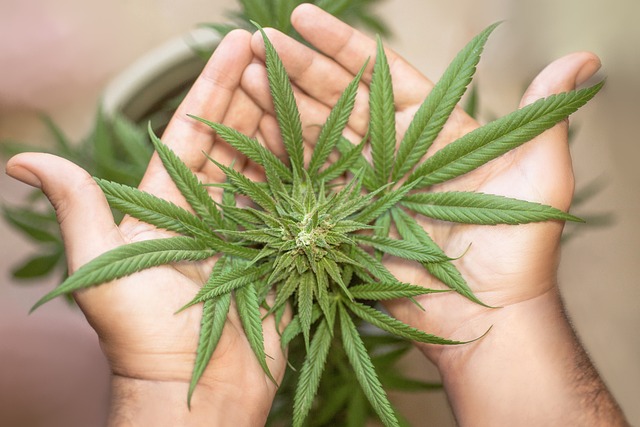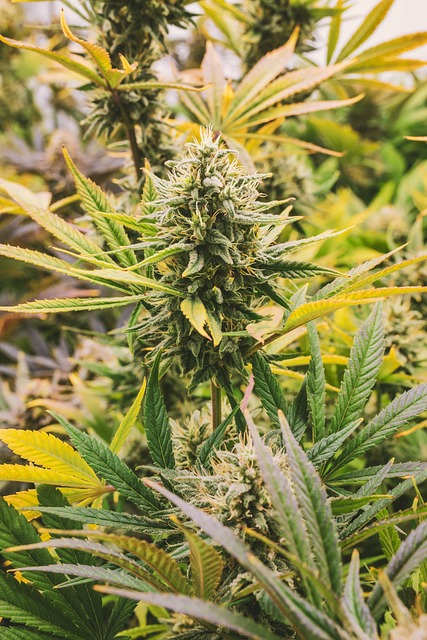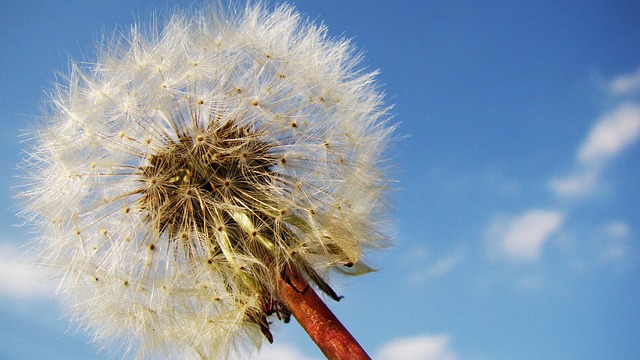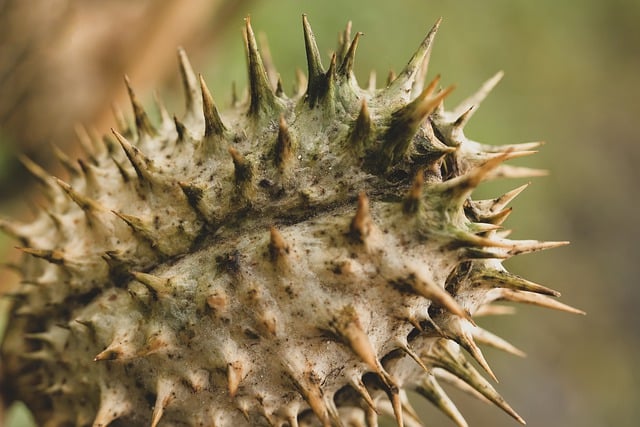2023 has seen a surge in interest around THCA (tetrahydrocannabinolic acid), a non-psychoactive cannabinoid with therapeutic potential, particularly for its anti-inflammatory and neuroprotective effects. Unlike its psychoactive counterpart THC, THCA is legally accessible in North Carolina under state regulations that require products to contain less than 0.3% delta-9-THC. This legal distinction allows consumers to explore the health benefits of THCA without experiencing a 'high.' In North Carolina, the evolving regulatory framework has encouraged research into THCA's efficacy and fostered a market for hemp-derived wellness products, including THCA flower. The importance of understanding the legal nuances surrounding THCA in North Carolina cannot be overstated, as it is a key factor enabling both scientific investigation and consumer access to this promising cannabinoid, which is legally defined and regulated within the state. As research progresses, THCA's potential as a natural health management tool becomes increasingly apparent, highlighting its significance in complementary health practices.
Discover the natural benefits of THCA flower, a non-psychoactive compound found within the hemp plant that’s gaining attention for its potential wellness applications. This article delves into the multifaceted advantages of THCA, exploring its legal status, particularly in North Carolina, and the science behind its molecular structure. We’ll examine the myriad ways THCA may contribute to health, including its antioxidant properties, neuroprotective and anti-inflammatory effects, pain relief potential, and more. From supporting skin and digestive health to aiding respiratory function and immune system support, THCA flower offers a holistic approach to wellness. As we navigate the legal landscape of its use and understand how to safely incorporate it into daily routines, we’ll also touch on the entourage effect, cultivation practices, and the future of research on this promising compound. Join us as we explore the comprehensive benefits of THCA flower and how it can be a natural addition to your health regimen.
- Unveiling THCA Flower: A Natural Compound Found in the Hemp Plant
- THCA Legal Status: Navigating State Laws Including North Carolina
- The Science Behind THCA: Understanding Its Molecular Structure and Potential
- THCA Flower Benefits: A Comprehensive Look at Its Wellness Applications
Unveiling THCA Flower: A Natural Compound Found in the Hemp Plant

Discovering the potential health benefits of THCA flower, specifically tetrahydrocannabinolic acid, is a fascinating journey into the natural compounds found within the hemp plant. THCA, the raw and non-psychoactive form of tetrahydrocannabinol (THC), has garnered attention for its therapeutic properties. As of the knowledge cutoff in 2023, THCA is legal in North Carolina, provided that it contains less than 0.3% delta-9-tetrahydrocannabinol (THC) and is derived from hemp rather than marijuana. This legal distinction is crucial for consumers and researchers alike, opening up avenues for exploring the benefits of THCA without the psychoactive effects associated with its decarboxylated form, THC.
The hemp plant, a versatile and legally distinct cousin to marijuana, hosts a variety of compounds, including THCA. Research into THCA’s potential health benefits is ongoing, with studies suggesting it may offer analgesic, anti-inflammatory, and neuroprotective effects. These properties make the compound a subject of interest for individuals seeking natural remedies to manage pain, reduce inflammation, and support brain health. In North Carolina, where the regulatory framework allows for the cultivation, sale, and use of hemp-derived products containing legal amounts of THCA, consumers have access to this promising cannabinoid in various forms, including THCA flower. This has led to an expansion of research into its efficacy and a growing market for hemp-derived wellness products.
THCA Legal Status: Navigating State Laws Including North Carolina

THCA, or Tetrahydrocannabinolic Acid, is a non-psychoactive cannabinoid found in raw or uncured cannabis plants that has garnered attention for its potential therapeutic properties. As of my knowledge cutoff in 2023, the legal status of THCA varies across different states within the United States. In North Carolina, understanding the nuances of state laws is crucial for individuals interested in the benefits of THCA flower.
Under the 2018 Farm Bill, hemp-derived products, including THCA, containing less than 0.3% Delta-9-THC were legalized federally. This has led to a boom in the hemp and CBD industry across the country. However, North Carolina’s approach to cannabis and its derivatives is more cautious. The state allows the use of CBD products with less than 0.3% THC, provided they are derived from hemp and comply with state regulations. It’s important for consumers in North Carolina to source their THCA flower from reputable vendors who ensure compliance with these laws. This ensures that the product contains legal amounts of THC and is free from Delta-9-THC, which remains a controlled substance under state law. As such, while THCA itself may be legal within certain parameters, navigating the legal landscape can be complex, and staying informed about local regulations is essential for consumers in North Carolina.
The Science Behind THCA: Understanding Its Molecular Structure and Potential

Delta-9-tetrahydrocannabinolic acid (THCA) is a naturally occurring compound found in the cannabis plant, which, when heated, converts into the more well-known psychoactive cannabinoid, delta-9-tetrahydrocannabinol (THC). Despite its legal status varying across different regions, including North Carolina, where THCA-rich products are legal under state laws but with certain caveats, the molecular structure of THCA has garnered significant scientific interest. This intricate molecular framework consists of a cyclic ether structure with an isomeric attachment point that differentiates it from THC, influencing its distinct pharmacological properties.
THCA interacts with the body’s endocannabinoid system through its affinity for cannabinoid receptors, particularly CB1 and CB2, without the psychoactive effects associated with THC. Research has shown that THCA may possess a range of therapeutic benefits, including anti-inflammatory, anti-nausea, anti-spasmodic, and potentially neuroprotective properties. The legal landscape, such as in North Carolina, allows for the exploration of these benefits in clinical settings, offering hope for those seeking alternative treatments for various ailments. Scientists continue to delve into the potential of THCA, with studies focusing on its molecular mechanisms and how they might be harnessed for health and well-being. As such, the legal context within states like North Carolina provides a platform for further research and the potential development of new therapeutic applications for this cannabinoid acid.
THCA Flower Benefits: A Comprehensive Look at Its Wellness Applications

The THCA, or tetrahydrocannabinolic acid, flower has garnered significant attention within the wellness community for its potential health benefits, particularly as it relates to natural pain relief and anti-inflammatory properties. Unlike its more famous counterpart THC, THCA is non-psychoactive, making it a preferred choice for those seeking the therapeutic effects of cannabinoids without the psychoactive ‘high’ associated with THC. In North Carolina, where regulations have been updated to include specific forms of hemp-derived CBD and THCA products, enthusiasts and researchers are exploring the myriad wellness applications of THCA flower. Preliminary studies suggest that THCA may offer benefits for a range of conditions, from neuropathic pain to arthritis, thanks to its interaction with the body’s endocannabinoid system, which plays a crucial role in regulating bodily functions and maintaining homeostasis. Additionally, the anti-inflammatory properties of THCA are being examined for their potential to alleviate symptoms related to inflammation without the side effects commonly associated with pharmaceutical interventions. As research continues, the understanding of THCA flower’s benefits expands, offering a promising addition to holistic health practices, especially in regions where its legal status is clarified and regulated, such as North Carolina.
THCA flower, a natural compound found within the hemp plant, has garnered attention for its potential wellness applications and is increasingly recognized for its therapeutic properties. With the THCA legal status becoming more defined, as seen with the regulations in North Carolina, consumers are exploring this non-psychoactive cannabinoid’s benefits. The molecular structure of THCA suggests a promising role in health and wellness, particularly due to its anti-inflammatory and neuroprotective properties. As understanding of THCA continues to expand, it’s clear that this hemp-derived compound holds significant promise, underscored by ongoing research. For those interested in the legal landscape, THCA’s status in North Carolina is a testament to the evolving policies surrounding cannabinoids and their derivatives. As such, the potential of THCA flower as a natural wellness supplement is becoming increasingly recognized and utilized.
